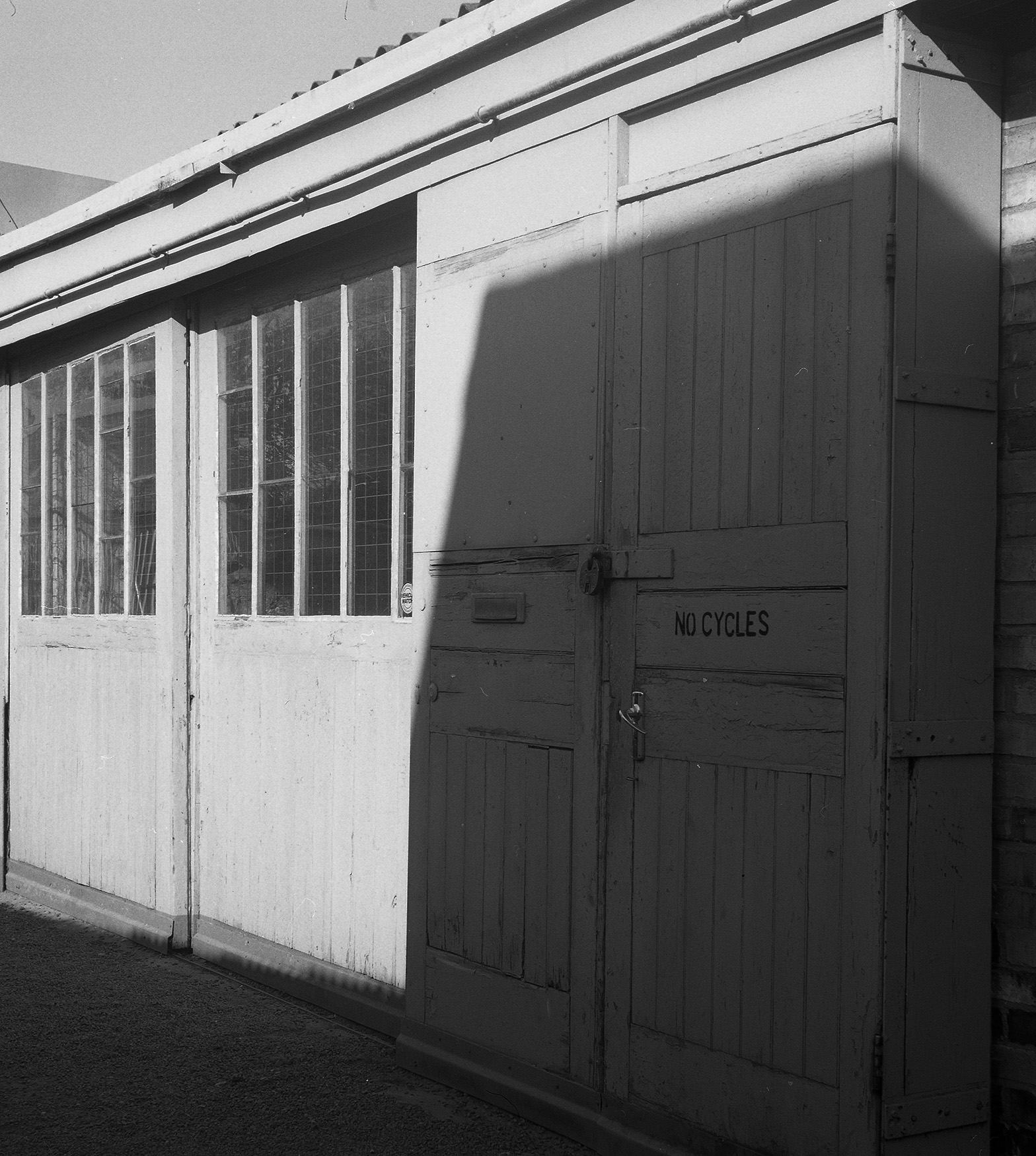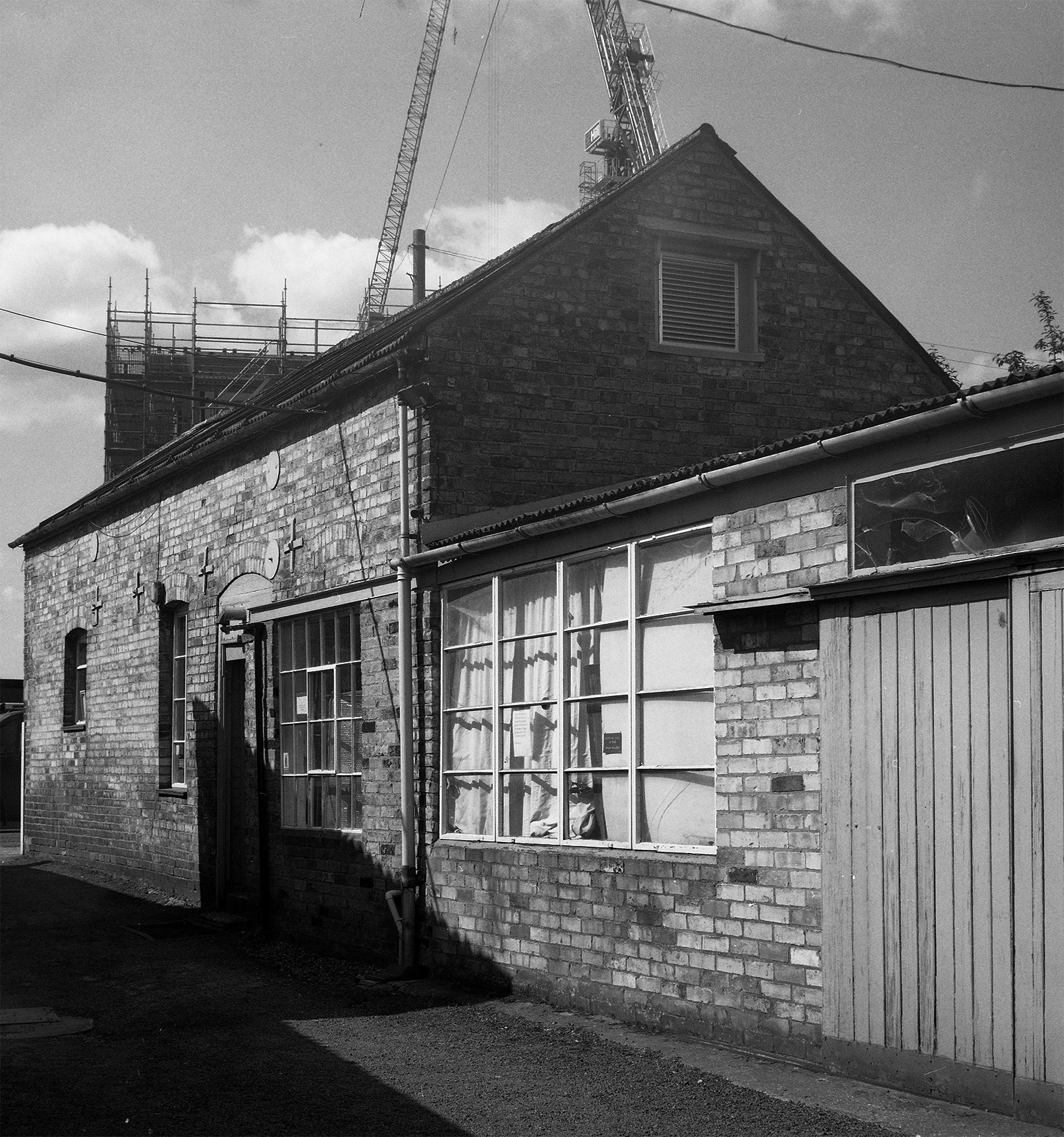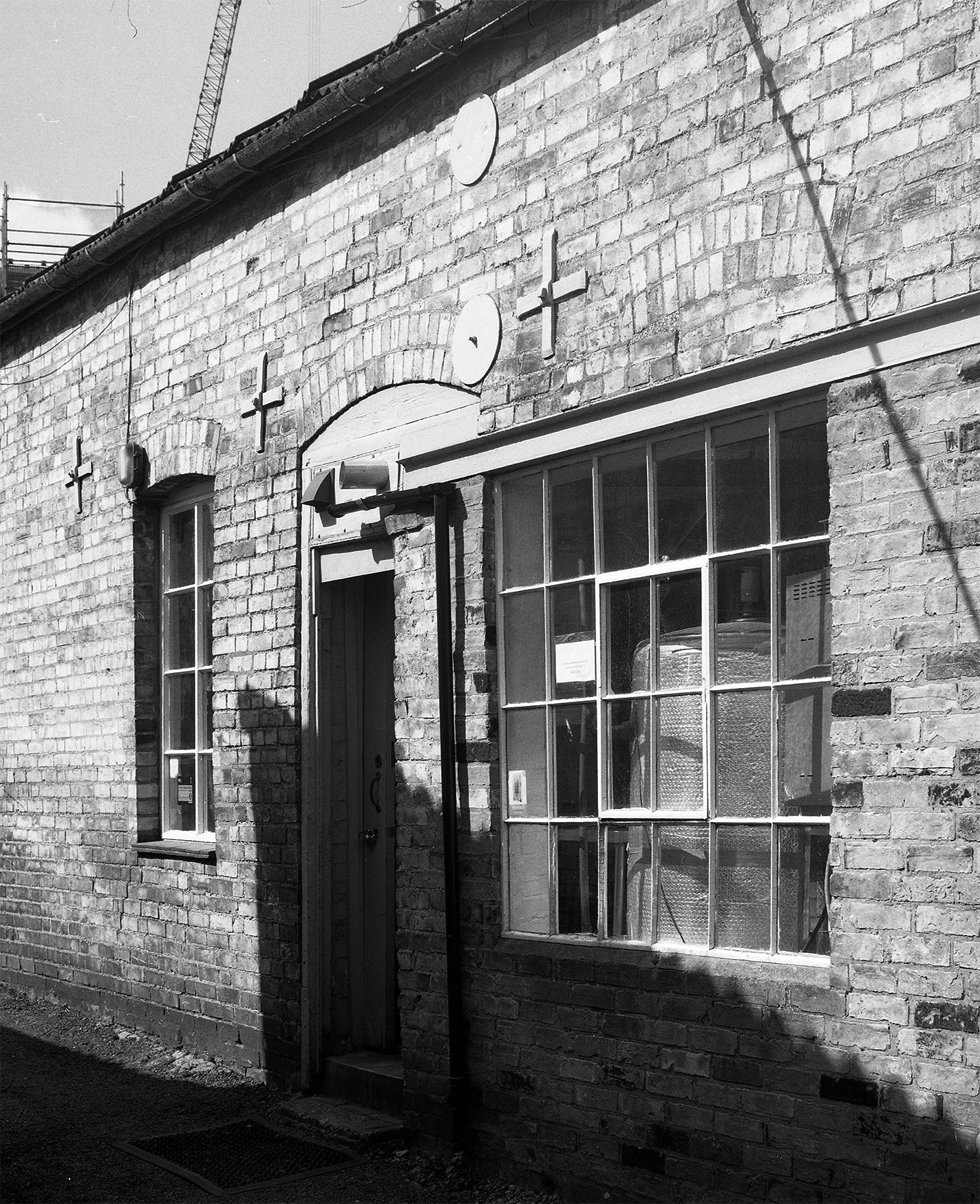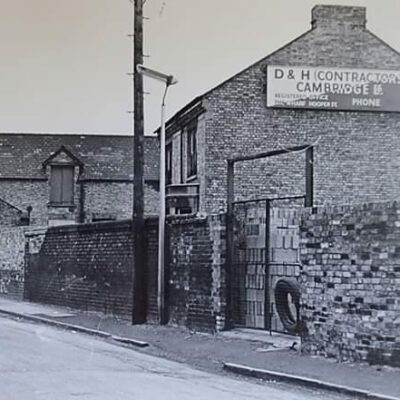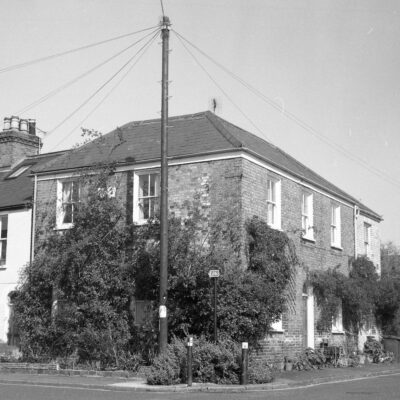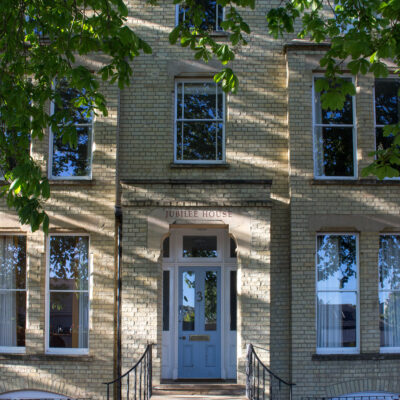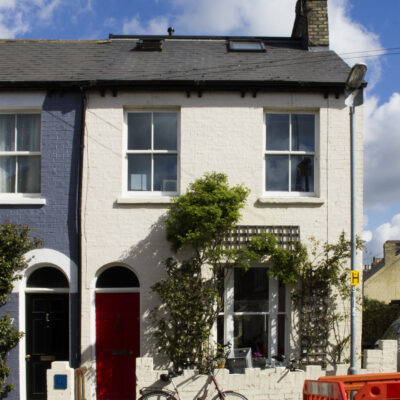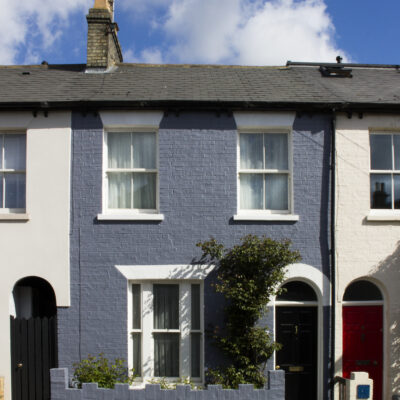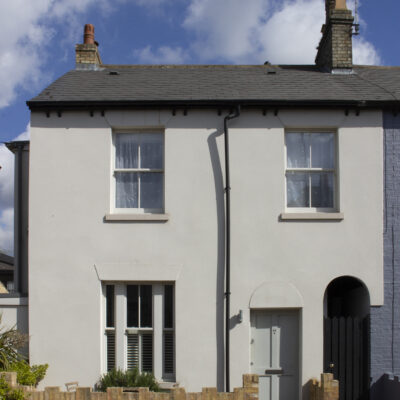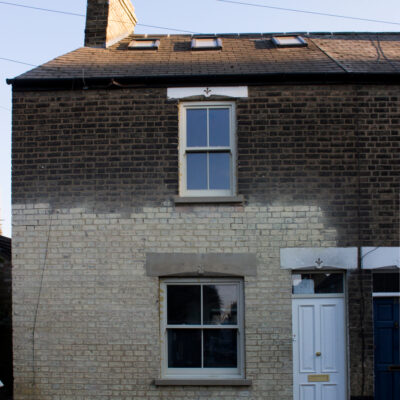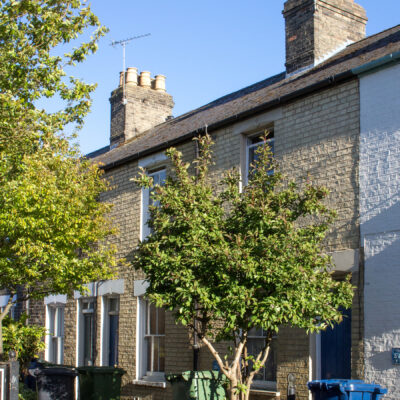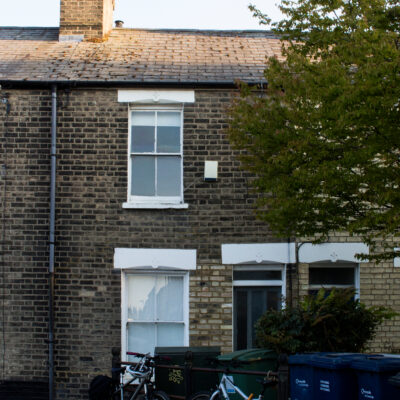Search by topic
- archaeology
- Building of Local Interest
- charity
- church
- crime
- dressmaker
- fire
- Great Eastern Railway
- Listed building
- Mapping Relief
- medieval
- oral history
- poverty
- Public House
- Rattee & Kett
- Religious House
- Roman
- scholar
- school
- Then and Now
- tudor
- women
- work
- world war one
- world war two
Search by text
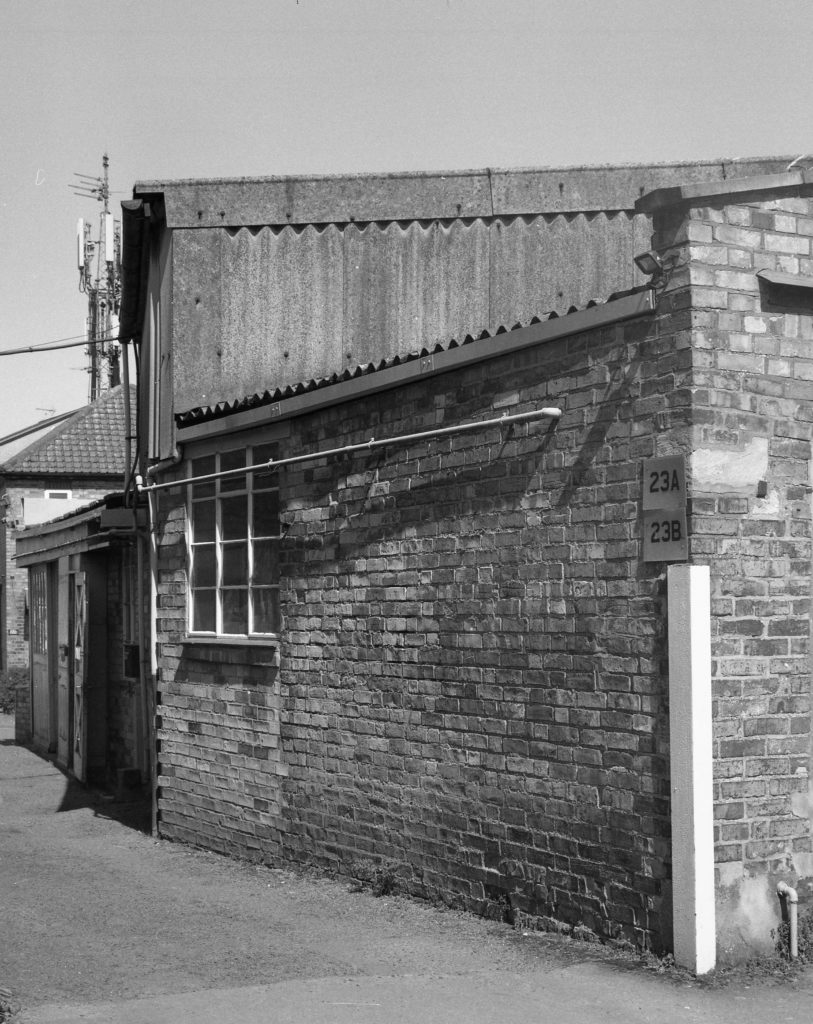
23a and 23b Hooper Street
Stables and piggeries, a motor mechanic's workshop, organ-building, upholstery, and a micro-brewery
The buildings now used by Calverley’s brewery, John High & Son upholstery and Norman Hall & Son organ builders have had a complex history. They occupy a plot of land of irregular shape, with a short frontage on Hooper Street and longer sides next to the railway line and the back gardens of several houses on Ainsworth Street.
The plot was part of a larger parcel of land on the corner of Hooper Street and Ainsworth Street, bought by railway worker Mark Almond by about 1870. By 1871 he had built a pub on the corner (the Great Eastern Tavern, now 23 Hooper Street) and several houses on Ainsworth Street. In 1874 he sold the tavern and the irregular plot next to the railway, to brewer Frederic Freeman. In 1883 Freeman sold the irregular plot to Abram Martin Smith, baker, of 80 Kingston Street.
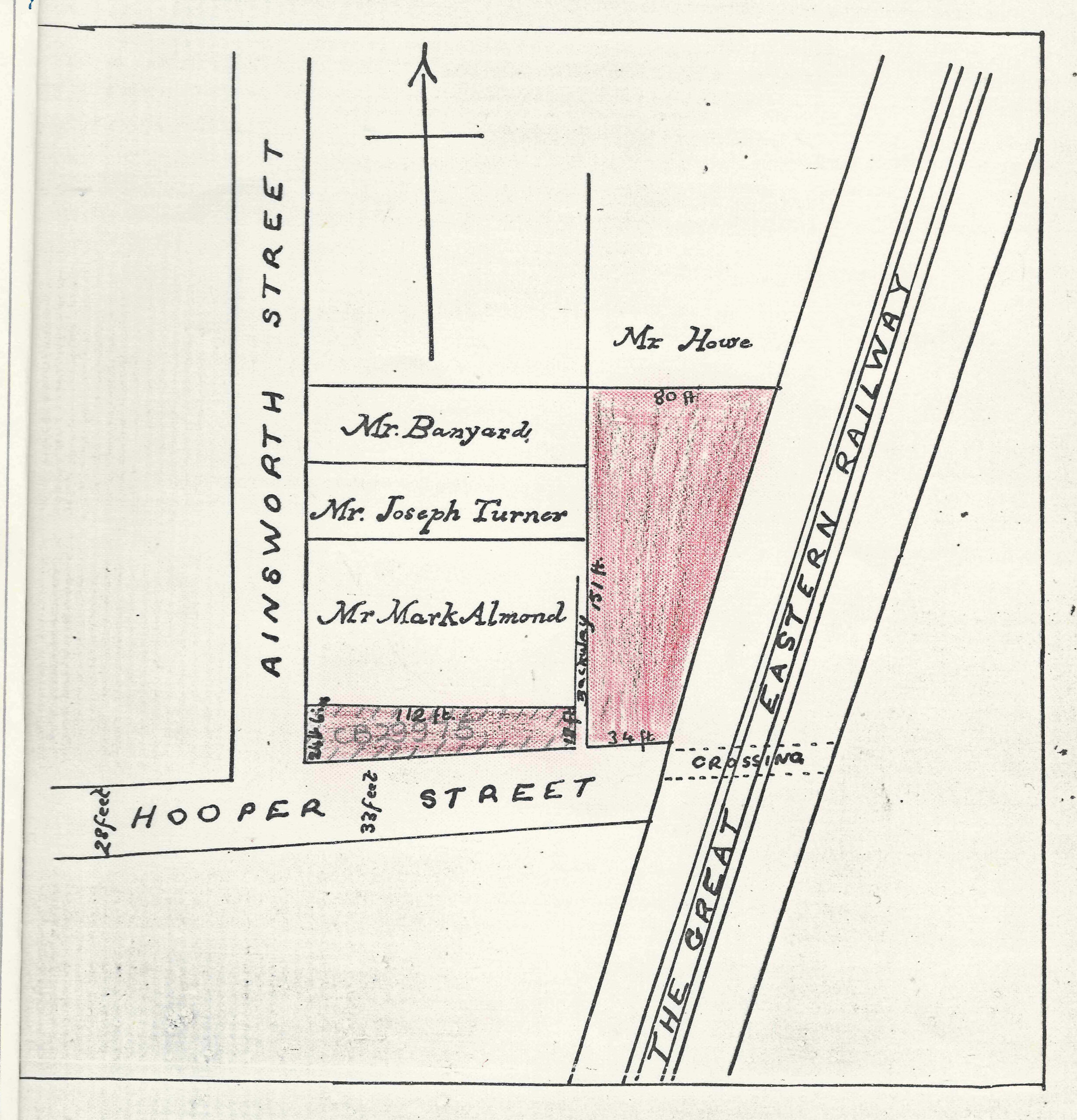
The shaded areas are the plots sold by Mark Almond in 1874, to Frederic Freeman. Source: deeds held by Calverley’s brewery.
The Ordnance Survey map of the late 1880s shows buildings on the site, though it is not clear whether they were built before or after the sale in 1883. By 1888, Abram Smith was using part of the premises as a stable for his delivery horse and cart, and this was mentioned in a newspaper report concerning the welfare of his horse (Cambridge Chronicle, 6 April 1988). Subsequent newspaper reports up to the 1920s mention a pig-sty, a dove-cote and a field for three cows. A report from 1902 (see below) tells us that the pig-sty was 72 feet from a house in Ainsworth Street – too close according to health regulations of the time.
In 1928 Abram Smith sold the property to Thomas William Fordham, motor engineer. Thomas Fordham was born in Cherry Hinton in 1896, son of a coal carman. In 1921 he married Florence Stepney and moved to Sturton Street. As well as establishing his business in Hooper Street, Thomas Fordham had a dwelling house built on the site, right next to the railway line. By 1929, according to the electoral register, Thomas and Florence had moved into ‘The Garage, Hooper Street’. In 1939 their house was given a number, 23a Hooper Street.
Part of the premises remained a car mechanic’s workshop, much used and appreciated by local residents, until John Reed’s recent retirement. The workshop is now part of Calverley’s micro-brewery, also greatly appreciated by local residents.
Sources
UK census records (1841 to 1911), General Register Office birth, marriage and death indexes (1837 onwards), the 1939 England and Wales Register, electoral registers, and local newspapers available via www.britishnewspaperarchive.co.uk.
Thanks to the Calverley and Fordham families for providing deeds for the premises, which gave us valuable information about the early history.
Contribute
Do you have any information about the people or places in this article? If so, then please let us know using the Contact page or by emailing capturingcambridge@
License
This work is licensed under CC BY-NC-SA 4.0






